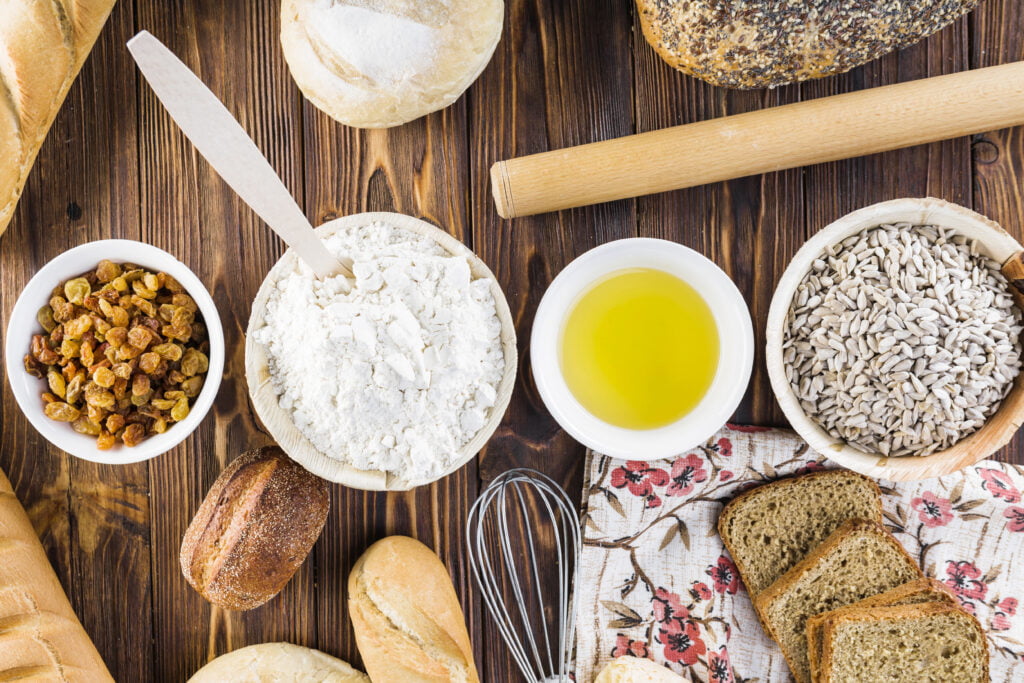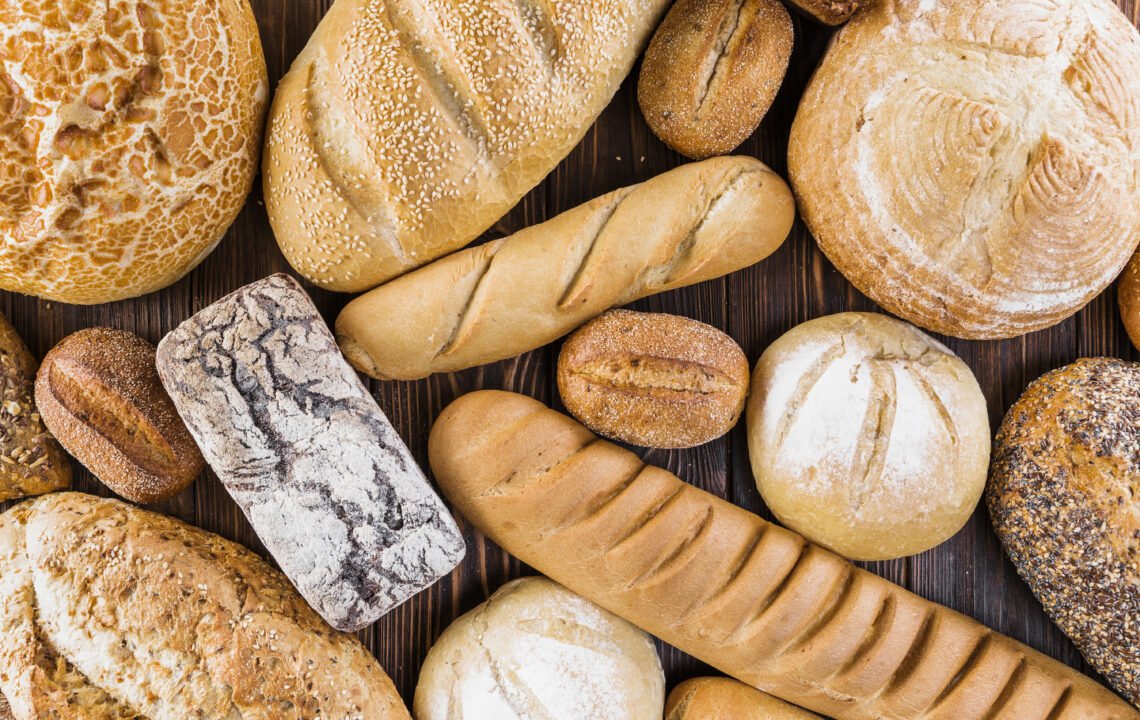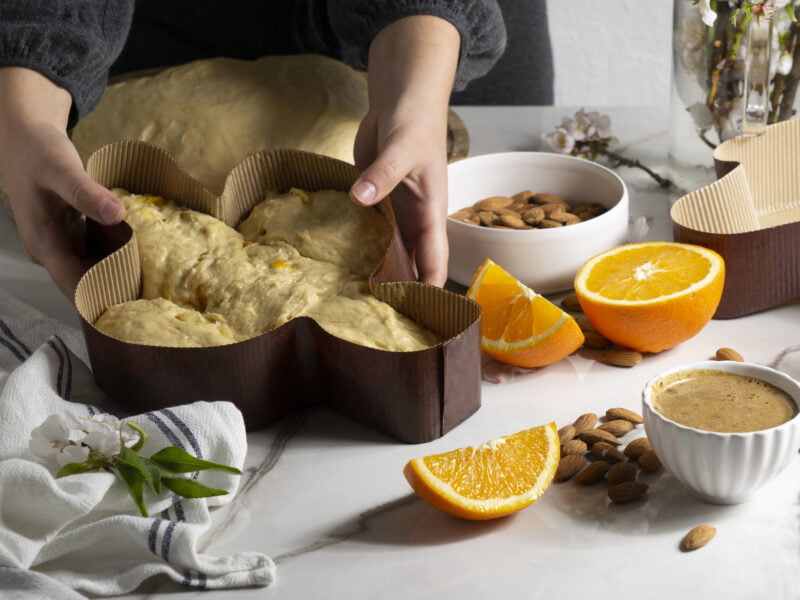Beyond its culinary appeal, nutritional yeast is highly valued for its nutritional content. It serves as a rich source of B vitamins, protein, and minerals, making it a nutritious addition to many diets.
But does nutritional yeast contain gluten? Today, we’ll uncover its composition, explore why it boasts a cheesy taste, and address the said burning question. Moreover, we’ll shed light on whether it’s suitable for inclusion in a gluten-free diet and whether individuals with celiac disease can safely enjoy it.
Is Nutritional Yeast Safe for Those with Gluten Sensitivities?
For those who are highly sensitive to gluten, it’s crucial to read product labels carefully and look for allergen statements, even if a product is labeled as gluten-free.
Fortunately, our nutritional yeast is grown on a carbohydrate and is free from gluten, dairy, sugar, and preservatives. So, you can enjoy its nutritional benefits without worrying about gluten-related concerns. While nutritional yeast is typically safe to eat, there’s a possibility of cross-contamination if it’s processed in a facility that also handles wheat products.
Is Nutritional Yeast Healthy? Exploring Its Benefits
Nutritional yeast is indeed a powerhouse of nutrients, offering a plethora of health benefits. Packed with high-quality protein, essential vitamins, minerals, and antioxidants, it’s a nutrient-dense food that can enhance your well-being.
For those following a plant-based diet, nutritional yeast is particularly valuable as it provides all nine essential amino acids, making it a complete protein source. This is essential for maintaining muscle health and supporting overall bodily functions.
Even a small serving of just 2 tablespoons of nutritional yeast packs a punch, offering 8 grams of protein, 4 grams of fiber, and a range of B vitamins, potassium, and zinc. Notably, fortified nutritional yeast is also an excellent source of vitamin B12 and folate, nutrients often lacking in plant-based diets.

Moreover, the fiber found in nutritional yeast, known as beta-glucan, serves as a double-edged sword by potentially reducing cholesterol levels and bolstering the immune system. These benefits make nutritional yeast a valuable addition to any diet, promoting both physical health and vitality.
How Is Nutritional Yeast Made?
2. Harvesting: After the yeast cells have grown and multiplied, they are deactivated, usually by heating or drying.
3. Drying: The yeast cells are then dried and formed into flakes or powder.
4. Fortification: Some nutritional yeast products are fortified with additional vitamins, such as B vitamins, to enhance their nutritional value.
5. Packaging: Finally, the dried yeast flakes or powder are packaged and made available for purchase.
FAQs
Q1: What is nutritional yeast?
Nutritional yeast is a deactivated yeast strain, often Saccharomyces cerevisiae, cultivated on molasses. It’s revered for its savory flavor profile, reminiscent of cheese, and is a popular ingredient in vegan and vegetarian cooking.
Q2: Does nutritional yeast contain gluten?
No, nutritional yeast is naturally gluten-free. Unlike grains like wheat, barley, and rye, which contain gluten proteins, nutritional yeast is derived from yeast and does not inherently contain gluten.
Q3: How can I ensure the nutritional yeast I’m using is gluten-free?
Look for products certified as gluten-free by reputable organizations such as the Gluten-Free Certification Organization (GFCO). These certifications indicate that the product meets stringent gluten-free standards and undergoes rigorous testing to ensure safety.
Q4: Is it safe for individuals with celiac disease or gluten intolerance to consume nutritional yeast?
For most individuals with celiac disease or gluten intolerance, consuming uncontaminated nutritional yeast is safe. However, it’s crucial to choose brands with reliable gluten-free certifications to minimize the risk of gluten exposure.
Q5: Are there any precautions I should take when using nutritional yeast?
Read product labels carefully to check for any potential cross-contamination warnings. Additionally, avoid products processed in facilities that handle gluten-containing ingredients to reduce the risk of unintended gluten ingestion.
Q6: Can nutritional yeast be a part of a gluten-free diet?
Yes, nutritional yeast can be a valuable addition to a gluten-free diet. It offers a versatile flavor profile and is rich in essential nutrients, making it a popular choice among individuals following gluten-free or plant-based lifestyles.
Q7: What are some common uses for nutritional yeast in gluten-free cooking
Nutritional yeast can be used as a seasoning or flavor enhancer in various dishes, including soups, salads, sauces, and snacks. It can also be sprinkled over popcorn or incorporated into vegan cheese alternatives, dips, and spreads.
Q8: Are there any potential health benefits associated with consuming nutritional yeast?
Nutritional yeast is a nutrient-dense food, rich in protein, vitamins, and minerals such as B vitamins, zinc, and selenium. It may support immune function, promote healthy digestion, and provide energy, making it a beneficial addition to a balanced diet.





